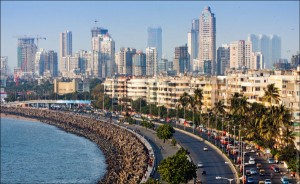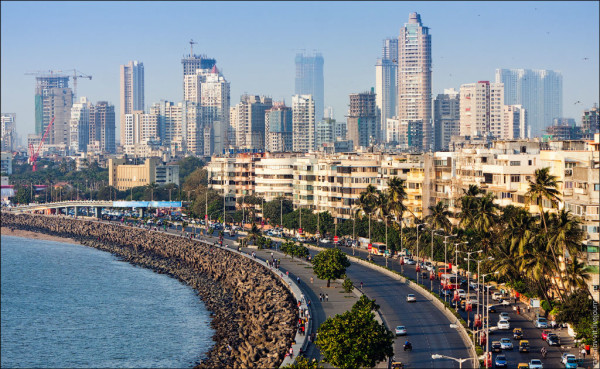Bottom Line: An equal opportunity market is a wishful thinking and that too in a city like Mumbai where the demand and supply side is heavily loaded in favour of the developers.
 Beyond the economics of demand and supply experience suggests that across the world only those markets have managed to be equal opportunity market where the three fundamentals are balanced – one, of course, is demand & supply, next is economy of the region; and then the parity between the cost of borrowing and the rental yield.
Beyond the economics of demand and supply experience suggests that across the world only those markets have managed to be equal opportunity market where the three fundamentals are balanced – one, of course, is demand & supply, next is economy of the region; and then the parity between the cost of borrowing and the rental yield.
In Mumbai none of the three can be said to be in balance. There is more demand & less supply. In a slow moving economy the job market has not grown in the financial capital of India, of late.
Last, but not the least, the difference between the borrowing cost and the rental yield is a huge 5-6 per cent. Why then Mumbai is being referred as the equal opportunity market?
Equal opportunity market?
Equal opportunity market is a generalized term but needs to be defined as per the city dynamics
Normally demand & supply cycle, job market potential and difference between borrowing cost & rental yield is taken as benchmark to understand housing market sustainability
Mumbai can never be an equal opportunity market even though the developers are defining it to bring homebuyers back to the market
Analysts tracking the housing market and the economy at large in this part of the world maintain that the theoretical explanations that define some other global cities are not enough to understand the complex market dynamics of Mumbai real estate. According to them, equal opportunity market is a generalized term but needs to be defined as per the city dynamics.
Developers assert that what makes Mumbai an equal opportunity market in comparison to many other cities is its sustained & moderate price index, which when calculated with the inflation indicates a low and yet sustainable growth. In the last few years the prices have not skyrocketed as they used to be and yet have given value for money to the investors vis-à-vis other investment instruments.
Today, with more uptake of commercial spaces across the city, and very low rate of appreciation despite increase in input cost, what can be vouchsafed is the fact that the price point will never be at the same level again in future. This has created a level playing field for both the developers and the homebuyers?
The developers, on their part, have gone through the worst cycle of slowdown and hence are realistic to not increase prices to a level where the fence sitters do not take a plunge. This market dynamics anyway is temporary and hence it is also imperative to find as to what can make Mumbai market equal opportunity in the true sense of the term.
Parth Mehta, Managing Director of Paradigm Realty points out that the basic need of Mumbai city is affordable housing to meet the growing housing needs of all. Affordable in true sense as per Mumbai market means a project which lies in a budget of INR 50 Lakh – INR 1 Crore, with value added amenities and flexible payment plan for potential customers to make their dream home turn into a reality.
“Aggressive approach by Banks, NBFCs & HFIs in providing home loans efficiently at lowest interest rates will make the difference. Last, but not the least, an effective time-line based approval system for sanctioning building plans swiftly is most appropriate requirement to make Mumbai a world class city and attractive market for homebuyers,” says Mehta.
Vineet Relia, Managing Director of SARE Homes believes there are several factors that drive the purchase sentiment of prospective homebuyers and outline the developer’s approach towards sale. While announcing the launch of any property market whether affordable or high-end, it is imperative that these affordable projects are within city precincts or in outlying areas that have good connectivity.
“Affordable housing projects that are miles away from urban zones and lack proper connectivity will fail to take off because people prefer purchasing homes that are closer to their workplace or have robust connectivity and cheaper transport options,” says Relia.
Sandeep Ahuja, CEO of Richa Realty says the much awaited real estate bill has finally been passed and soon we will see a regulator in place. This will bring the much needed discipline in the sector. As far as the Mumbai real estate landscape is concerned, approvals play a pivotal role.
“Given the high interest rates, difficult market conditions, and now RERA, developers have to understand the importance of timely completion of the projects. Time bound approvals, timely completion of the infrastructure projects, rationalisation of government premiums will make Mumbai a truly opportunistic market,” says Ahuja.
Well, the developers might define the equal opportunity market as per their suitability of the business, the fact remains that from a homebuyers’ point of view what matters the most is the price point which, as of now, is quite attractive in many of the locations across the city. Second is the job market which has not improved in the city of Mumbai in the last few quarters. And third is the interest rate that is going downwards.
For the homebuyers, in a city like Mumbai anything that is not evenly loaded in favour of the developers is termed as an equal opportunity market. That, however, is not equal opportunity in the true sense of the term.
By: Ravi Sinha





